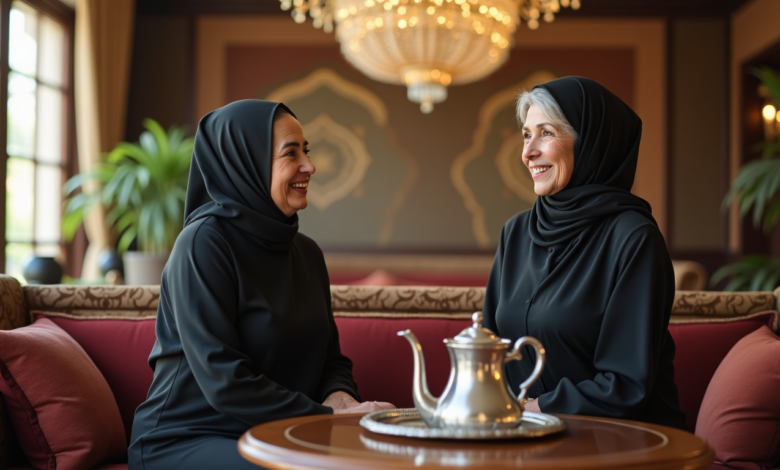
Empowering Women in UAE: Identifying Needs and Enhancing Rights
The United Arab Emirates (UAE) has made significant strides in empowering women, yet challenges persist in fully realizing gender equity. Women in the UAE, particularly in Abu Dhabi, face unique struggles in employment, education, healthcare, and rights. Understanding these challenges is crucial to enhance women’s satisfaction and participation in various sectors, including the labor market and public service. The UAE’s commitment to women’s empowerment has an impact on social progress and economic growth.
This article explores the needs and priorities of women in the UAE, focusing on key areas such as work-life balance, career development, and equal employment opportunities. It examines the role of vocational training and adult-continuing education in boosting workforce participation. The discussion also covers important aspects like maternity leave, childcare support, and health services for local women. By addressing these issues, the UAE aims to create a more inclusive environment that supports women entrepreneurs, strengthens workers’ rights, and tackles social pressures faced by women in Gulf countries.
Education and Career Opportunities for UAE Women
The United Arab Emirates has made significant strides in empowering women through education and career opportunities. An impressive 70% of all university graduates in the UAE are Emirati women, with 77% enrolling in higher education after secondary school. This high level of educational attainment has an impact on women’s participation in various sectors. The UAE government and private enterprises are actively encouraging female leadership development, promoting career progression and professional growth. As a result, women now account for 10% of all private sector companies in the UAE, with 25,000 Emirati businesswomen running projects worth over AED60 billion. These achievements highlight the UAE’s commitment to gender parity and women’s empowerment in education and the workforce.
Workplace Rights and Gender Equality
The UAE has made significant strides in promoting workplace rights and gender equality. The Constitution guarantees equal rights for men and women in legal status, property rights, education, and professional opportunities. Women occupy 66% of public sector jobs, with 30% in senior leadership positions. The UAE Gender Balance Council, established in 2015, reviews legislation and policies to achieve gender balance in the workplace. In 2018, the UAE Cabinet endorsed a bill ensuring equal pay for men and women in the public sector, which was extended to the private sector in 2020. The UAE also leads in female empowerment within its diplomatic service, with 49.5% of Ministry of Foreign Affairs employees being women.
Healthcare and Well-being for Emirati Women
The UAE government has made significant strides in providing comprehensive healthcare services for women. The National Policy for the Promotion of Women’s Health aims to ensure access to high-quality, preventive, curative, and rehabilitative care throughout women’s lives. This policy recognizes the unique biological, social, and behavioral factors influencing women’s health. Key objectives include enhancing access to reproductive and sexual health services, supporting pre-marital healthcare, and expanding mental health services for women. The UAE’s health system offers both public and private options, with government-funded services delivering high standards of care. As a result, life expectancy in the UAE has reached 76.8 years, comparable to levels in Europe and North America.
Legal Rights and Social Empowerment
The UAE Constitution guarantees equal rights for men and women, including legal status, property rights, education, and professional opportunities. Women can vote, drive, own property, and work, though some activities require guardian approval. The UAE has ratified the UN Convention on the Elimination of All Forms of Discrimination Against Women, making gender equality a top priority. However, challenges persist in areas like domestic violence, where legal protections are limited. The UAE Gender Balance Council, established in 2015, reviews legislation and policies to achieve gender balance in the workplace. Women now hold 66% of public sector jobs, with 30% in senior leadership positions. The government has also mandated women’s representation on boards of directors for federal bodies and private companies.
The United Arab Emirates has made impressive strides to empower women, showing a strong commitment to gender equality in various sectors. From education and career opportunities to workplace rights and healthcare, the country has put in place policies and initiatives that have an influence on women’s participation and well-being. The high percentage of female university graduates, increasing representation in leadership positions, and the establishment of the UAE Gender Balance Council all point to a future where women play a crucial role in the nation’s development.
While challenges remain, particularly in areas like domestic violence protection, the UAE’s efforts to enhance women’s rights and opportunities are noteworthy. The country’s focus on providing comprehensive healthcare, ensuring equal pay, and promoting women in diplomacy showcases a holistic approach to gender empowerment. As the UAE continues to address the needs and priorities of women, it’s paving the way for a more inclusive society where women can thrive in all aspects of life. This ongoing commitment not only benefits women but also contributes to the overall social progress and economic growth of the nation.







[…] The Dubai Women Establishment has revealed an exciting lineup for their 2024 forum. This vital platform brings together powerful voices from entertainment, business, and politics. These leaders will discuss the most important issues that shape women’s progress worldwide. […]